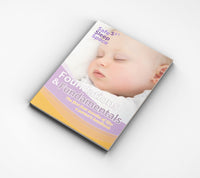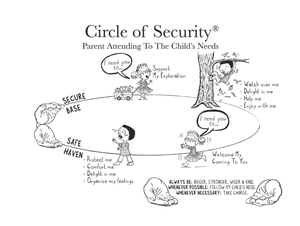Often babies who are hungry or thirsty will wake overnight to feed. So firstly lets be clear on what your baby’s nutritional needs are.
Within the first 6 months of life, babies need milk as a stable diet.
If solids are introduced much before about 6 months they may fill your baby’s stomach, but that will not meet the nutritional requirements your baby needs to gain from milk, (see WHO guidelines). If a baby's appetite for milk is being suppressed because they are filling up on solids; they tend to wake more for milk feeds. This is especially true for if solids are offered before the milk and/or are given in large quantities.
Around 6 months your baby's kidneys are more able to manage the extra protein and mineral load that comes with solids, in addition, your baby is physically maturing and more able to coordinate swallowing thicker textures. At this age milk continues to be what your baby continues to rely on as the primary source of nutrition; keep servings of solids small and offered half an hour or so after the milk feed.
This stage of life is about experiencing shapes, textures and developing swallowing and coordination skills. Over time your baby will begin to enjoy finger foods and show their control over their intake; that is exactly what we are aiming for. Chewing, sitting independently in the highchair, and the eruption of teeth, sees solids becoming the more stable part of your baby's diet at around 10 to 11 months of age, but sometimes sooner in some babies.
At this age it is about the nutritional content of the solid foods, with the milk being a part of the diet. So it is time to offer solids first, then milk. A baby this age rarely needs overnight feeding for nutritional reasons, and babies who do feed over night, may have less interest in solids and become what some term as 'fussy eaters' during the day. Milk feeds are best limited to day light hours so solids and milk can be appropriately balanced.
By about 12 months of age your baby should be eating the equivalent to about 3-4 tablespoons of a range of solids at meal times, including some finger foods, and taking milk drinks around 3 times a day, perhaps mid-morning, mid-afternoon and in the evening before bed or a ‘dream feed'. This way milk and feeding do not become problematic overnight.
Help with looking after your baby
The NourishBaby - Guide to Babies - is an online program that you can view in your own time. The Guide to Babies helps you to understand and care for your baby and covers key milestones, sleep and settling advice and baby development. There is a section on real parents sharing their experience of adjusting to parenthood.
Many parents have reduced sleep when a new baby arrives. The Safe Sleep Space website has a variety of resources and supports to provide tips and advice on how to assist your baby with sleep. You can also book a phone consultation to speak with a Sleep Consultant.
Other blog posts you will find helpful:
When is it time to get help for my child's sleeping?
Why is infant mental health so important when it comes to sleep?









